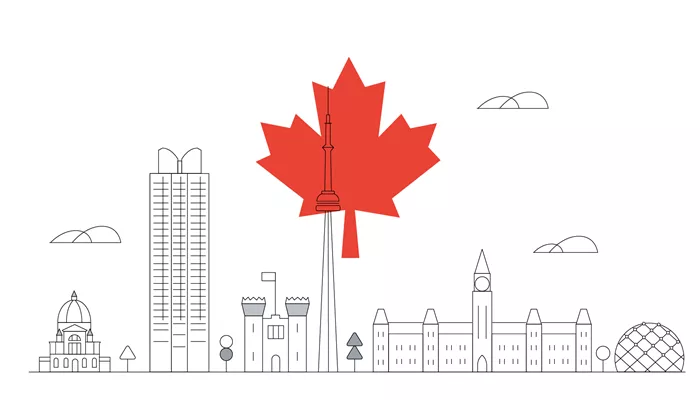Canada is a country known for its diverse opportunities and welcoming atmosphere. Many people visit Canada on a visitor visa, seeking to explore its beauty, visit friends and family, or simply experience its culture. However, a common question arises: Can you search for a job while in Canada on a visitor visa? This article provides a detailed overview of the rules, regulations, and practicalities involved in job searching under a visitor visa.
Understanding the Visitor Visa
What is a Visitor Visa?
A visitor visa, also known as a Temporary Resident Visa (TRV), allows foreign nationals to enter Canada temporarily for purposes such as tourism, visiting family or friends, or conducting business activities. The visa typically permits stays of up to six months.
Conditions of a Visitor Visa
Visitor visas come with specific conditions:
Purpose of Visit: You must adhere to the purpose outlined in your visa application, such as tourism or visiting family. Employment is not included in the list of permitted activities.
No Employment: Visitor visas do not grant the right to work in Canada. This means you cannot accept employment or be paid for work during your stay.
Can You Search for a Job on a Visitor Visa?
The Basics of Job Searching
While a visitor visa does not permit you to work in Canada, it does not explicitly prohibit job searching. However, there are important distinctions between searching for a job and actually working.
Job Searching: You can look for job opportunities, attend interviews, and network. The act of searching for a job is not illegal; it is the acceptance of a job offer and working that is restricted.
Interviews and Networking: Attending interviews and networking events are allowed as long as you do not engage in employment activities. Networking can be an essential step in finding job opportunities.
Why Search for a Job?
Job searching while on a visitor visa may be strategic for several reasons:
Assessing the Job Market: Visiting Canada allows you to better understand the local job market and industry demands.
Building Connections: Networking with potential employers and industry professionals can be beneficial for future employment prospects.
Preparation for Future Work Permits: If you find a job that interests you, you can explore pathways to obtain a work permit, such as securing a job offer that aligns with Canadian immigration programs.
How to Search for a Job Effectively
Research the Job Market
Online Job Portals: Websites like Indeed, LinkedIn, and Glassdoor provide insights into available job openings and company reviews.
Company Websites: Research companies in your field of interest. Many companies post job openings on their own websites.
Professional Associations: Join industry-related associations or groups that may have job listings or networking events.
Prepare Your Resume and Cover Letter
Canadian Resume Format: Adapt your resume to the Canadian format, emphasizing relevant skills and experiences.
Tailor Your Cover Letter: Customize your cover letter to each job application, highlighting how your skills align with the job requirements.
Attend Networking Events
Job Fairs: Look for job fairs and career expos that are open to the public. These events can provide valuable networking opportunities.
Professional Events: Attend industry conferences, seminars, or workshops to meet professionals and potential employers.
Contact Recruitment Agencies
Local Agencies: Reach out to Canadian recruitment agencies that specialize in your field. They can provide job leads and advice on the local job market.
Industry-Specific Agencies: Some recruitment agencies focus on specific industries or sectors, offering specialized assistance.
Legal Considerations
Avoiding Unauthorized Work
No Paid Work: You must not accept payment for any work while on a visitor visa. Doing so is a violation of visa conditions and can lead to serious consequences, including deportation.
No Work Permits: Visitor visas do not allow you to apply for a work permit while in Canada. You must leave Canada to apply for a work permit from outside the country.
Transitioning from Visitor to Work Permit
Job Offer: If you receive a job offer while on a visitor visa, you must apply for a work permit from outside Canada. The job offer may require an LMIA (Labour Market Impact Assessment) or be part of a work permit program like the International Mobility Program.
Work Permit Application: Follow the application process for a work permit, which includes obtaining a job offer and meeting eligibility criteria for the specific permit type.
see also: Where to Submit Passport for Canada Visa in India?
Implications for Future Immigration Applications
Maintaining Good Immigration Record
Visa Compliance: Ensure that you comply with all the conditions of your visitor visa. Violations can negatively impact future visa or immigration applications.
Honesty in Applications: When applying for future visas or permits, be honest about your previous stays and activities in Canada.
Exploring Other Immigration Pathways
Express Entry: Consider applying for permanent residence through the Express Entry system if you meet the eligibility criteria.
Provincial Nominee Program: Explore provincial nominee programs that may offer pathways to permanent residence based on your skills and job offer.
Conclusion
While a visitor visa allows you to explore job opportunities and network in Canada, it does not permit you to work. Job searching can be a valuable activity during your visit, helping you understand the job market and build connections. However, you must comply with visa conditions and not engage in any employment activities.
If you find a job that interests you, you will need to leave Canada and apply for a work permit to pursue employment legally. Always adhere to visa conditions and seek professional advice if needed to ensure a smooth transition from visiting to working in Canada.


